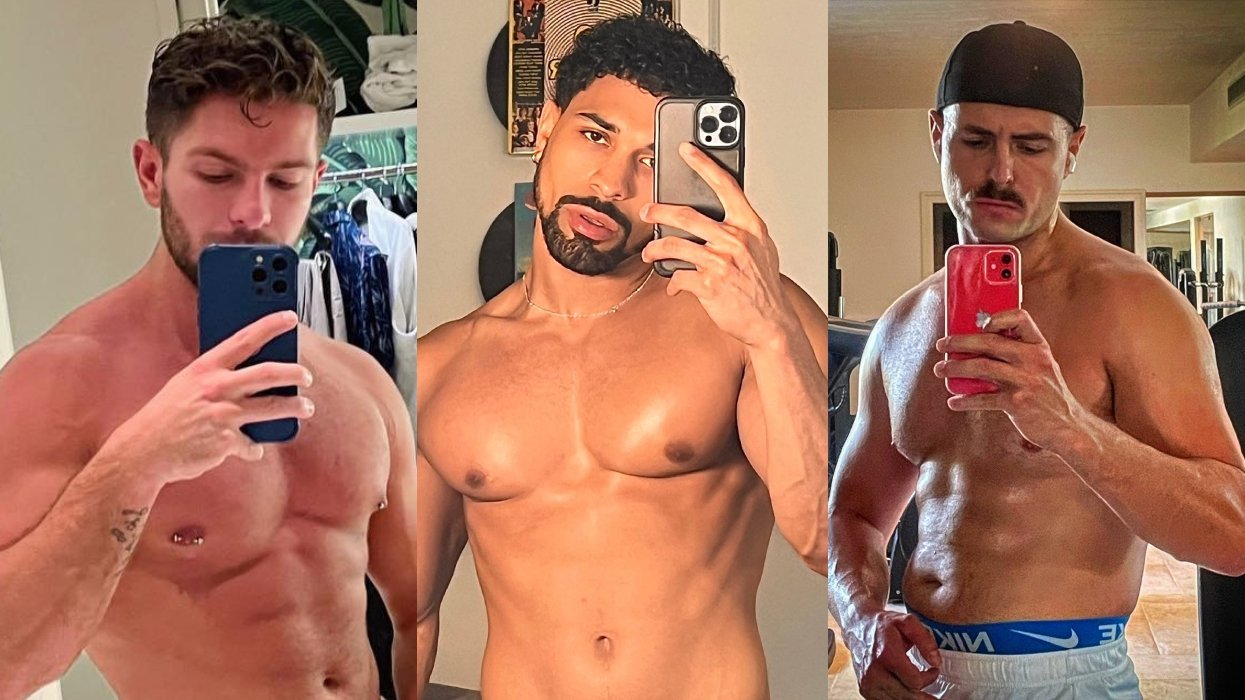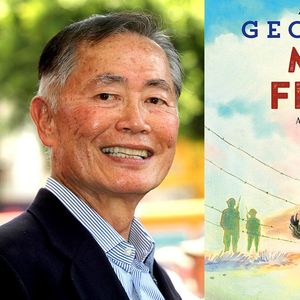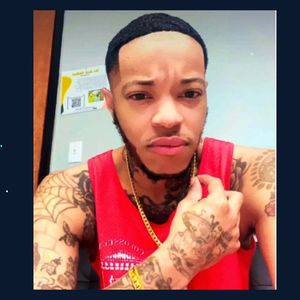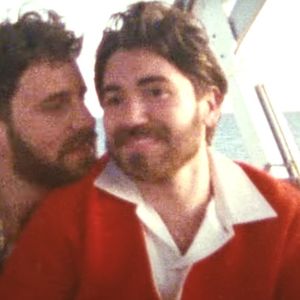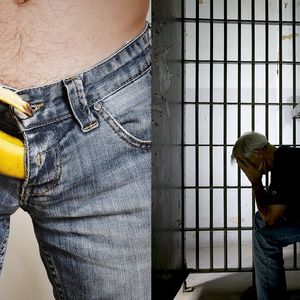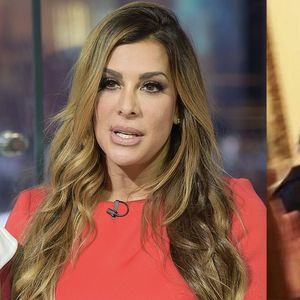Entertainment
CONTACTStaffCAREER OPPORTUNITIESADVERTISE WITH USPRIVACY POLICYPRIVACY PREFERENCESTERMS OF USELEGAL NOTICE
© 2024 Pride Publishing Inc.
All Rights reserved
All Rights reserved
By continuing to use our site, you agree to our Private Policy and Terms of Use.
Does being a powerful gay in showbiz still involve refusing to say youre that way? Maybe, but not as much as a year ago. In the May 2007 issue of Out, my cover story on the glass closet detailed how some big names like Jodie Foster and Anderson Cooper continued to live everyday gay lives while adamantly refusing to come out on the record. The piece raised a storm of controversy reminiscent of the yelps surrounding all those fiery outing attempts in the 1990s. Closet protectors yelled invasion of privacy, while others cheered the critique of the open-secret lifestyle, which is halfway between the iron-closeted life and the completely closet-free ones lived by Lance Bass, Rosie ODonnell, and a lot of people on Project Runway. Well, since the article was published -- or maybe because of it -- more glass has been shattered than at a Jewish wedding. David Hyde-Pierce, whom I cited as a pioneer glass closeter, was the first to do a little smashing. In May an AP interview with Hyde-Pierce mentioned his partner, actor-writer-producer Brian Hargrove, and a publicist for the Broadway show Curtains instantly confirmed this was a coming-out gesture on behalf of its star. And in September, Jodie Foster referred to her partner in an interview, and she followed that up three months later by citing my beautiful Cydney, who sticks with me through all the rotten and the bliss when receiving an award at the Women in Entertainment Power 100 event. Talk about womens power! As glass closet followers well knew, Fosters girlfriend, Cydney Bernard, had long lived under a cloak of anonymity, especially when the privacy-minded Foster tried to perpetuate her image as a busy single mom. Those days now seemed as officially over as Rosie ODonnells crush on Tom Cruise. And were these two glassy stars careers bloodied by the shards? Hardly. Hyde-Pierce ended up winning a Tony, and Foster nabbed a Golden Globe nomination for, aptly enough, The Brave One. Unfortunately, neither of them followed up with any full-length interviews giving more details about their sexuality. It seemed like they wanted to clear the air with those quickie comments, then move on, back to the silence. Which led we closet commentators to our own soul-searching debate: Does it even count as coming out unless you spell it out and also do a big-time People cover to officialize your announcement? Is a beautiful Cydney remark tossed off for a small crowd simply too little, too late? Actor-writer-director Craig Chester (Adam & Steve) is one of many gays who feels Foster didnt come out at all. She thanked a woman, and the media acknowledged it was her partner, not Jodie. But Jodies not the bad guy. Shes the victim of a homophobic culture and a town called Hollywood. Foster certainly didnt take Out up on a request to interview her for this issues cover -- No, thanks, came the publicists terse reply -- nor did she muster an actual answer last year when Entertainment Weekly asked about the glass closet cover. And both Anderson Cooper and CNN refused comment on the piece, and, except for being too well-bred to throw a fit when sharing airtime with Kathy Griffins playful comments, he has resolutely stayed glassy. Still, Fosters casual comment was pretty explosive, reflecting the changing landscape of Hollywood closeting, while helping push it forward. It seemed like a move that could only happen in the post-Ellen and -Brokeback era. Things have certainly advanced since the early 90s, when Craig Chester was dropped by his (gay) agent because he was openly gay, even though hed just starred in the indie hit Swoon! Outing pioneer Michelangelo Signorile agrees that stars handlers are usually the closeting culprits. They fill the actors up with these ideas at the beginning of their careers, he says. But maybe now the stars are not listening to them. The message is so much out there in the world that you should be out, and their handlers may have less influence on them. The Internet has helped put that message out there big-time, as Web reports and speculations have made it harder for stars to hide- -- even under glass. Neil Patrick Harris and Lance Bass came out after online items pretty much goaded them into admission, but maybe that only served to wise up those dead-set on keeping the door locked tight. Nothing seemed to stop persistent rumors about -- and vehement denials from -- the likes of Ricky Martin, Queen Latifah, Prison Breaks Wentworth Miller, or Idol-turned-Spamalot star Clay Aiken, who told New York magazine this year that he simply didnt have sexual urges anymore. And then you have a couple of proud Out cover boys -- Torchwoods John Barrowman and Mad Mens Bryan Batt, who are probably the most appealing members of the nonglassy community. These two arent out because of a fight or a witch hunt -- they just felt like it! Batt said in the last Out 100 issue that after he filmed Jeffrey in 1995, a very renowned TV producer told me that he didnt believe an out gay man could work or be a credible leading man to American audiences. But Batt felt he couldnt and wouldnt live a lie, so he made a figurative razzing sound and moved on. The same year, when Barrowman was on Central Park West, he was urged by CBS to keep his sexuality under wraps, but like Batt, he ignored the warning. Maybe it was detrimental to me, he said in Outs October issue, but I didnt care. Once youve been put in a position of either the limelight or authority and you are an honest and truthful human being, you are political. Barrowman came out officially in a 2004 interview approved by his openly gay agent, Gavin Barker. His previous agent lost points by saying Barrowman shouldnt appear in public with his partner, Scott Gill. The real message? Just as with picking roles, actors can select the right reps for their personal needs. Nothings changed for me, Neil Patrick Harris happily told Ellen DeGeneres on her talk show last year. Harris even got a thumbs-up from How I Met Your Mother cocreator Carter Bays, who told Entertainment Weekly, I thought it was just so incredibly classy the way he did it. It wasnt a big deal. (So much for all power people being the devil.) Of course, for every Ian McKellen saying hes flourished since coming out or T.R. Knight, who continues to generate spontaneous standing ovations when appearing at awards shows, theres a Rupert Everett admitting to major career setbacks. That makes a lot of handlers antsy, especially since their 10% is at stake. These people arent homophobic, theyll remind you -- theyre simply reflecting the reality they perceive, which is that the public cant handle an openly gay actor in straight roles. It doesnt always occur to them that, more likely, its other money people who cant deal with it! And so these cant-handle-it handlers cling tenaciously to whatever power they have left, stubbornly refusing to retreat even as some stars bust closets and keep succeeding. After ODonnell and DeGeneres came out, they said, Yeah, but theyre comics, not actors. When all the above-named actors (and Cynthia Nixon) came out, they said, Yeah, but theyre just on TV. And if Anderson Cooper busted out, theyd say, Hes just on cable. The answer for many performers is to keep trumping their agents fears by responding to public pressure and being more forthcoming. As the increasingly savvy public tires of the halfhearted glass-closet lifestyle, a lot of stars will too, and the information highway will help lead them out of entombment. Hopefully, by then the beautiful Cydney can give them a festive greeting. Send a letter to the editor about this article.
Want more breaking equality news & trending entertainment stories?
Check out our NEW 24/7 streaming service: the Advocate Channel!
Download the Advocate Channel App for your mobile phone and your favorite streaming device!
From our Sponsors
Most Popular
38 Male Celebs Who Did Full Frontal Scenes
November 17 2023 5:18 PM
These are all the celebrities Who came out as LGBTQ+ in 2023
December 31 2023 12:19 PM
26 actors who showed bare ass in movies & TV shows
February 28 2024 1:50 PM
16 times male celebrities had to say they weren't gay
April 17 2024 11:57 AM
21 LGBTQ+ reality dating shows & where to watch them
April 03 2024 4:01 PM
15 Unforgettable Gay Kissing Scenes From TV & Movies
February 14 2024 10:20 AM
14 queens who quit or retired from drag after 'RuPaul's Drag Race'
April 04 2024 12:56 PM
40 steamy celebrity Calvin Klein ads we'll always be thirsty for
January 04 2024 10:54 AM
The 15 Best LGBTQ+ Movies of 2023
December 04 2023 10:32 AM
Watch Now: Advocate Channel
Trending Stories & News
For more news and videos on advocatechannel.com, click here.
Trending Stories & News
For more news and videos on advocatechannel.com, click here.
Latest Stories
Here's who 'Drag Race' fans on social media want to see win season 16
April 17 2024 5:05 PM
Andy Cohen responds to all the recent Bravo & 'Housewives' chaos as more ensues
April 17 2024 3:56 PM
Not just JoJo Siwa: 30 songs made for an artist & released by another
April 17 2024 3:16 PM
How The Pride Store celebrates National Tea Day: A tale of two brews
April 17 2024 2:14 PM
Here's why Netflix's 'Baby Reindeer' is our new twisted queer obsession
April 17 2024 12:17 PM
April 17, 2024
April 17 2024 11:50 AM
Troye Sivan & Charli XCX are teaming up for the gayest tour ever
April 17 2024 11:43 AM
Kennedy Davenport finally explains the rumored 'All Stars 3' drama with Trixie Mattel
April 16 2024 4:16 PM
Watch the queens from 'Drag Race Live' hilariously reveal Out's RuPaul cover
April 16 2024 4:10 PM
Noah Beck claps back at people who assumed he's gay for hugging a male friend
April 16 2024 4:03 PM
Jonathan Bailey's next gig is being lined up & it involves dinosaurs & ScarJo
April 16 2024 2:12 PM
Queens were showing out & shining bright at The Center's fundraising dinner
April 16 2024 1:37 PM







